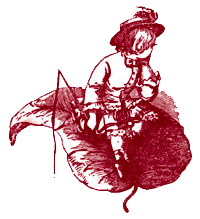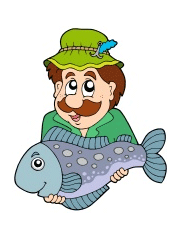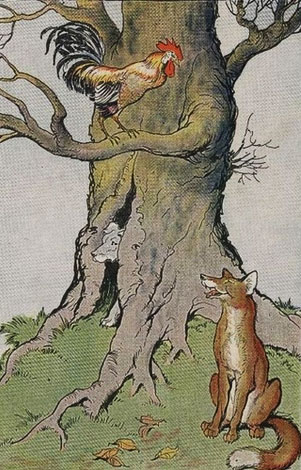Short Stories » Dumb Creatures
Dumb Creatures
WHEN the all-wise God created animals, and some of them for the use of man, it is not to be believed that he intended creatures of the highest degree of intelligence to be cruel to those so much inferior in understanding and so helpless. When men fight, it is considered cowardice for one to strike another when he is- down. (Gentlemen never fight, they reason the matter to an understanding and settlement.) But man will strike poor dumb animals, who are all the time down in helplessness. A gentleman never does this wrong to his honor, for he knows there are other ways of doing.- Man would soon weary of the many heavy burdens, or sink under them, if he and not the horse had to bear them. There would be few journeys made, and where would be the delightful rides and sleighing were there no horses ? In some countries men transport great loads of freight upon their backs, and how strange it looks to us, even in pictures.
Cows are generally timid creatures, and, in a certain way, the best of animals. How many good things to eat would be lacking if we had no milk! Nothing in the vegetable kingdom would answer the purpose. The cow, then, should at all times be regarded as our benefactress as much as man is hers, and should receive our kindest treatment. What would the children do without bread and milk? How some folks would miss ice-cream in the summer-time! And then such frolics as the children have in the country with bossy's calf.
But aside from our own ideas and pleasure on the subject, we have a Master who is the friend of all dumb creatures, and some day we and they will meet Him and have to listen to what will be said.
In the Bible it is written : "And at His coming all flesh shall speak, and the trees shall clap their leaves for joy." All flesh includes animals, birds, and every other living thing. How will some persons feel in the day of judgment when the dumb creatures they have beaten or half starved rise up before them and bear witness against them? The Creator is just, he will hear the helpless, and he will not say, "Your cause is just, but I can do nothing for you;" no, those cruel hearts will have to meet their reward.
It seems to me that a person who will take two peaceable dogs and worry them into a cruel fight, is not even of so good a spirit as the dogs themselves. It is strange that human intelligence can stoop to such a level, no, beneath the level of the brute creation.
Cruelty to animals is receiving a large share of attention in some cities, and laws to protect these dumb creatures and punish their cruel masters, have been enacted. There is an association which publishes a good paper called Our Dumb Animals, and it is a good one for everyone, old and young, to read. Many thousands of children are joining it by letter. Its object is to teach kindness, and thus the law become natural and universal. Many beautiful stories are related, and they desire to learn all they can of such in the experience of their new members.
In a certain kingdom, Norway, I am told that if a man beats his horse cruelly, or overloads it, or drives it too fast, he is brought before the proper officers of the law and fined. If the offense is repeated, he is fined and imprisoned, and on the third offense these penalties are again imposed and the animal taken from him. But in that country it is seldom that cruelty is exercised, for it is hard for the poor to earn a living, and a horse or a cow is regarded as riches, and these creatures are generally treated with all the kindness they need. Sheep arc also very kindly treated, for the nice long wool will some day be transferred from its own place into the family's use.
I have even seen a bed-spread made from cow's hair, and it was a handsome one, too. I knew a young girl who told me: "In my country I was poor and could not afford to keep a pet hen, even, times were so hard. Now I keep sixty. I am rich." This girl made a good use of her income, and in two years' profits of her industry, emigrated a lone relative, who now unites with her in the same business. These good women saw much among us Americans that looked to them like waste. A friend once remarked : " These foreigners use what we would waste, and sell what we would use, and that is why they prosper where we do not get ahead." I once saw a Swede currying his horse and observed that he carefully saved the hair in a box. As a dear friend of mine says, " I haven't got a particle of inquisitiveness, but my 'want to know' is very large," so I asked him why he did that. He told me that he was going to add a room to his house before long, and would use this in the plaster instead of throwing it away and buying more. Then he patted his horse and praised its shining coat and ended by thanking Blackbird for the contribution.
Dumb Creatures - Takeaway for Class 1,2,3
Always be kind to animals, because they have feelings too, just like us.
Dumb Creatures - Takeaway for Class 4,5,6
Even seemingly "dumb" animals have feelings and can show kindness, so we should treat them with love and respect.
Dumb Creatures - Takeaway for Class 7,8,9
Even animals, which we often think of as "dumb creatures," have their own ways of showing intelligence and care, reminding us to appreciate and respect all living beings.
3 Fun Facts
- The story shares a valuable lesson about kindness towards animals, as the main character learns that animals can show gratitude and are intelligent in their own ways.
- In the story, a man who treats animals poorly gets stuck on an island, only to be saved by the very creatures he underestimated and mistreated.
- The tale illustrates that appearances can be deceiving, as the "dumb creatures" prove to be resourceful and caring, changing the man's perspective on their abilities.
Quiz for Class 1,2,3
- What did the rabbit notice about the other animals in the story?
- Who did the rabbit and the mole meet after talking in the meadow?
- How did the animals finally find out that the noise was just the wind?
Quiz for Class 4,5,6
- What was the main reason the man wanted to cut down the tree in the story?
- How did the animals in the forest try to stop the man from cutting down the tree?
- What lesson did the man learn by the end of the story?
Quiz for Class 7,8,9
- What method did the king use to test the intelligence of the animals?
- How did the fox outsmart the other animals during the intelligence test set by the king?
- What lesson did the other animals learn from the outcome of the king's intelligence test?
Was this article useful?
We’d love to hear from you! Share your valuable feedback and suggestions to help us improve your experience and serve you better.
❤️ If you’re happy with our website, please consider supporting us — Donate Now!
🌟 Or leave a positive review here to encourage our team!















